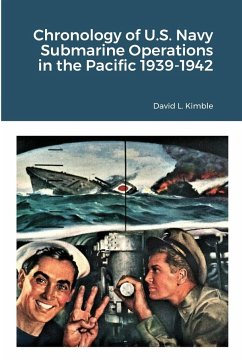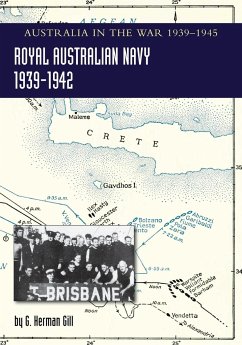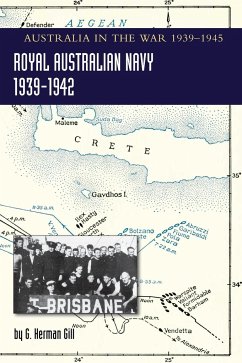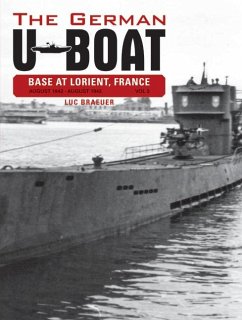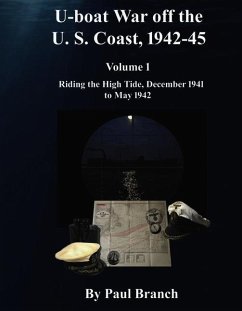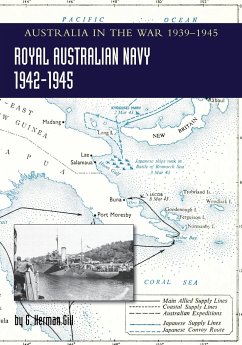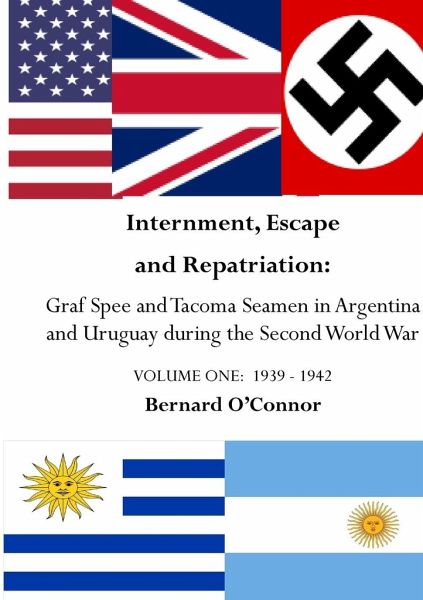
Internment, Escape and Repatriation Volume One 1939 - 1942
Graf Spee and Tacoma Seamen in Argentina and Uruguay during the Second World War
Versandkostenfrei!
Versandfertig in 1-2 Wochen
24,99 €
inkl. MwSt.

PAYBACK Punkte
12 °P sammeln!
In December 1939, three months after the start of the Second World War, rather than let the British Royal Navy sink the German Panzerschiff Admiral Graf Spee, its captain ordered his ship to be scuttled in the River Plate and his officers and crew put on the Tacoma and taken ashore. Most were landed in Buenos Aires, the rest in Montevideo. Over the following months, the Abwehr, Germany's Military Intelligence, and the German Naval Attaché in South America assisted most of the Graf Spee officers and some of its crew to escape. Their aim was to get their highly trained men back on board the Kri...
In December 1939, three months after the start of the Second World War, rather than let the British Royal Navy sink the German Panzerschiff Admiral Graf Spee, its captain ordered his ship to be scuttled in the River Plate and his officers and crew put on the Tacoma and taken ashore. Most were landed in Buenos Aires, the rest in Montevideo. Over the following months, the Abwehr, Germany's Military Intelligence, and the German Naval Attaché in South America assisted most of the Graf Spee officers and some of its crew to escape. Their aim was to get their highly trained men back on board the Kriegsmarine ships and submarines and further contribute to the German war effort. Concern that Argentina and Uruguay were breaking the Geneva Convention in allowing 'prisoners' to escape and continue fighting, the British Admiralty put pressure on the British Foreign Office to insist that the Argentine and Uruguayan governments properly interned the Graf Spee and Tacoma personnel. At the end of the war, arrangements were made to repatriate those who had not escaped to Germany. The British Secret Intelligence Service, the clandestine Special Operations Executive and the American Office of Strategic Services were involved with propaganda and deception regarding the Graf Spee issue. Using predominantly contemporary British documents and newspaper articles from several continents, Bernard O'Connor's two-volume Internment, Escape and Repatriation is a documentary history. It tells through a British filter, the human story of German sailors, Abwehr officers, the British officers in the Admiralty, the Royal Navy, Foreign Office officials and British, American, Argentinian, Uruguayan and Vatican government officials, diplomats and members of the business community.





